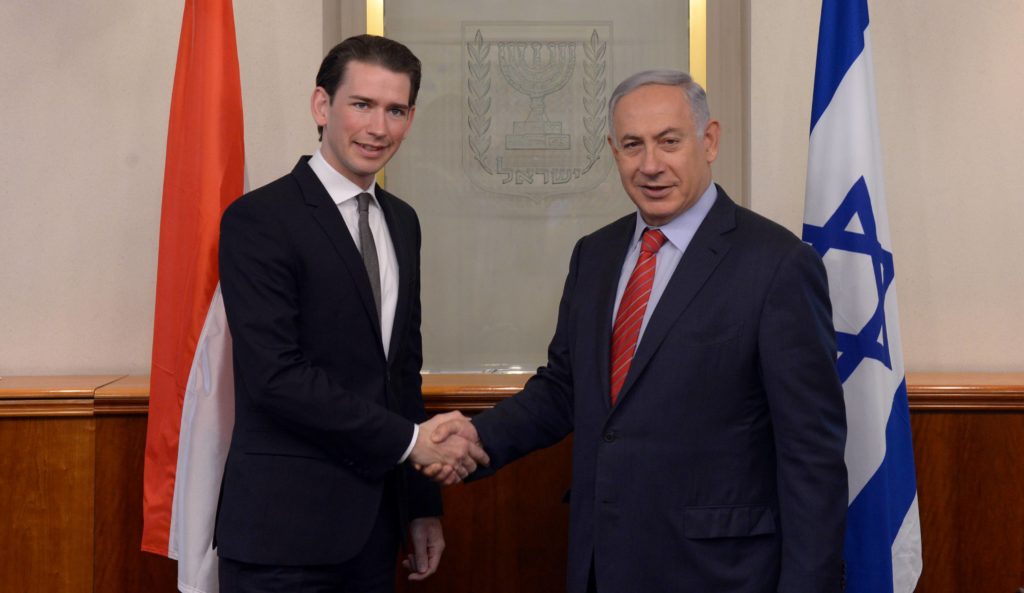Israel will continue direct contact with Austrian Chancellor Sebastian Kurz, said Benjamin Netanyahu, despite the presence in Austria’s government of a far-right party with historic links to the Nazis.
By: Joelle Lewitan/TPS
Israel will continue to maintain direct contact with Austrian Chancellor Sebastian Kurz, Prime Minister Benjamin Netanyahu said Tuesday, despite the presence of the far-right Austrian Freedom Party (FPÖ), which has historic links to the Nazis, in the government. But Netanyahu also said the government would not deal with the FPÖ due to the party’s Nazi-linked past and instructed the Ministry of Foreign Affairs to develop a “concept” to govern Israel’s dealings with the new government in Vienna.
In a rare display of bipartisanship, MK Amir Peretz (Zionist Camp), a member of the Knesset Foreign Affairs and Defense Committee and the chairman of the Knesset’s Israel-Austria Parliamentary Friendship Group, praised Netanyahu and said that even on a parliamentary level, Israel would not collaborate with the far-right wing party.
“Prime Minister and Foreign Minister Benjamin Netanyahu did the right thing by adopting the recommendations of the foreign ministry to boycott radical right-wing ministers in the Austrian government. The State of Israel has excellent and important ties with the Austrian people and its elected representatives, but as far as maintaining a relationship with a party that has a Nazi past – we draw a clear red line. On a parliamentary level, too, we will not maintain relations with Austrian MPs from the radical right,” Peretz said.
The current dispute is not Israel’s first diplomatic mix-up with Vienna over the Freedom Party, which was founded in 1956 by a former SS officer named Anton Reinthaller. In 2000 Israel’s Ambassador to Austria Nathan Meron was recalled after the party joined the government following comments by then-party chairman Jörg Haider praising some of Hitler’s political decisions and down-playing conditions in concentration camps.
More recently, Kurz’s Austrian People’s Party (ÖVP) won Austria’s national elections on October 25 but failed to secure a parliamentary majority, sparking coalition talks between the two parties.



